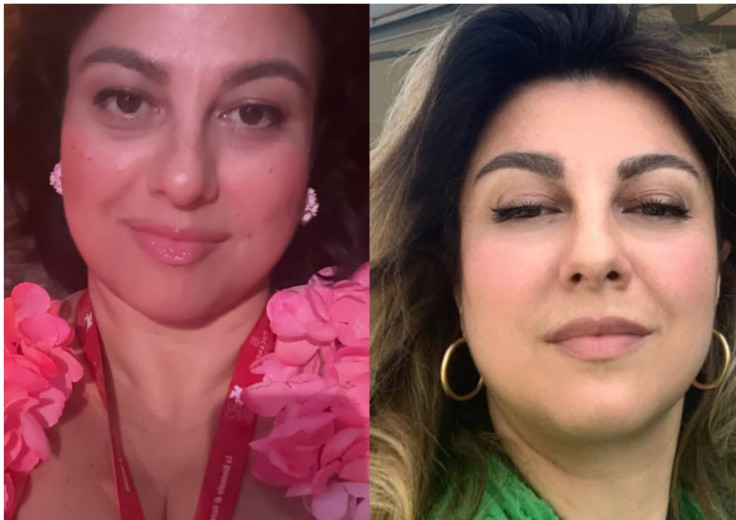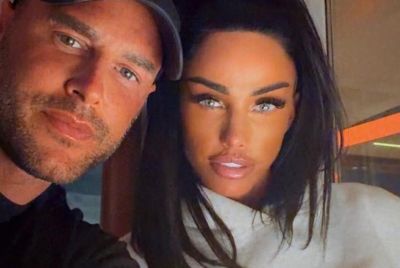Who Is Federica Polidoro? Reporter Who Asked Awkward #MeToo and #BLM Question at Venice Film Festival

KEY POINTS
- Italian journalist Federica Polidoro asked Julia Roberts and Andrew Garfield a controversial question at Venice.
- She excluded co-star Ayo Edebiri from her query on #MeToo and Black Lives Matter.
- Clips went viral, sparking backlash against Polidoro for insensitivity.
An Italian journalist has found herself at the centre of international scrutiny after a question she posed at the Venice Film Festival went viral for all the wrong reasons.
Federica Polidoro, a reporter for ArtsLife TV, faced backlash when she asked Julia Roberts and Andrew Garfield about the future of Hollywood 'after the #MeToo movement and the Black Lives Matter are done' — while excluding their co-star, Ayo Edebiri, who was also sitting at the panel.
The Awkward Exchange
The interview, for Luca Guadagnino's new film 'After the Hunt', featured Roberts, Garfield and Edebiri side by side. Polidoro asked: 'What have we lost in the politically correct era, and what we have to expect in Hollywood after the #MeToo movement and the Black Lives Matter are done?'
Roberts asked her to repeat the question, joking that she could not tell who the sunglasses-wearing reporter was addressing. Polidoro clarified that the question was only for Roberts and Garfield.
Edebiri, 29, interjected politely: 'I know that that's not for me, and I don't know if it's purposeful if it's not for me... [but] I don't think it's done. I don't think it's done at all.'
The Emmy-winning star of The Bear added: 'Hashtags might not be used as much but I do think that there's work being done by activists, by people every day that's beautiful, important work. That's not finished, that's really, really active for a reason because this world's really charged. And that work isn't finished at all.'
Garfield echoed her response, saying both movements are 'still absolutely alive', while Roberts stressed that the 'work isn't finished at all.'
Clips of the exchange quickly spread on social media, with one user writing: 'One thing we're not talking enough about: how Ayo Edebiri had to be gracious in dealing with this appalling behavior and question because she would've been criticized for being unprofessional.'
Another added: 'Aside from Ayo Edebiri being a superstar class act, if I was a journalist and made Julia Roberts lean forward and speak to me this sternly, I would simply turn in my media badge.'
Who is Federica Polidoro?
Polidoro is an experienced journalist who has worked for more than two decades across Italian and international outlets. According to her own accounts, she has covered culture, cinema and politics for publications of varying political leanings. She is believed to be in her late 40s or early 50s, although her exact age is not widely reported.
Her profile on the Golden Globes website describes her as a professional with an academic background and extensive experience in the field of film and audiovisual media. Holding a master's degree in film and audiovisual history, theory and criticism, she studied broadcast journalism at the New York Film Academy under the guidance of three-time Emmy Award winner Bill Einreinhofer.
A journalist, theorist, film critic, essayist and video reporter since 2001, she has worked as an editor, contributor and correspondent during numerous international events, including the Cannes, Venice, Berlin, Marrakech and Toronto film festivals, as well as serving as an analyst during awards seasons. Her collaborations span across publications such as Repubblica, XL, L'Espresso, Il Sole 24 Ore, Il Magazine, Vanity Fair, Rolling Stone, Il Foglio, Cineuropa, Artribune, Artslife, The Orlando Dispatch, La Voce di New York and the International Cinephile Society, in addition to news agencies like Askanews and institutions such as the Venice Biennale.
Since August 2024, she has also collaborated with The Hollywood Reporter Rome. She has been a member of the International Cinephile Society since 2019 and has served as an international voter for the Golden Globes since 2021. In addition, she teaches publishing for fashion and entertainment at the National Academy of Fine Arts.
Polidoro says she comes from a multi-ethnic family background and identifies as both feminist and matriarchal. She has argued that her track record demonstrates openness to different perspectives and denies that her Venice question was racially motivated.
Polidoro's Defence
In a lengthy Instagram statement after the incident, Polidoro said: 'Following an interview, I have been subjected to personal insults and attacks because of a question that, for some reason, was not well received by some members of the public. I find it striking that those who unjustly accuse me of racism and consider themselves custodians of justice find acceptable violent language, personal attacks and cyberbullying.'
She argued that critics were focusing on her phrasing rather than on the thoughtful responses of the actors. 'All the contributions from those present were reported in full in the published interview, without any omissions', she wrote.
Polidoro continued: 'To date, I am not aware of any protocol that dictates the order in which questions must be asked in an interview. Censoring or delegitimizing questions considered "uncomfortable" does not fall within the practice of democracy.'
She added: 'In my view, the real racists are those who see racism everywhere and seek to muzzle journalism, limiting freedom of analysis, critical thinking and the plurality of perspectives.'
Backlash Continues
Critics were unimpressed with her explanation. One commenter replied to her post: 'Your lack of accountability is nauseating. You asked a question that expressly concerned people of color, yet you chose not to ask the only woman of color sitting in front of you. Own it, apologize, and do better.'
Others argued that Polidoro's attempt to defend her professional independence ignored the power dynamics at play during the interview.
Still, Polidoro insists her role as a journalist is to raise sensitive issues. 'Journalism's role is to ask questions, even on delicate topics, with respect and responsibility', she said. 'I will not tolerate or accept defamatory or violent language, and I reserve the right to seek legal protection against those who... insult and attack me instead of seeking a civil and constructive discussion.'
There is no record of Polidoro having been involved in similarly viral missteps before Venice, although festival press conferences and celebrity junkets are frequent breeding grounds for awkward moments.
This episode, however, has propelled her into global headlines. Federica Polidoro has quickly become a figure in the ongoing debate over how journalists frame questions on race, gender and politics in Hollywood.
© Copyright IBTimes 2025. All rights reserved.





















